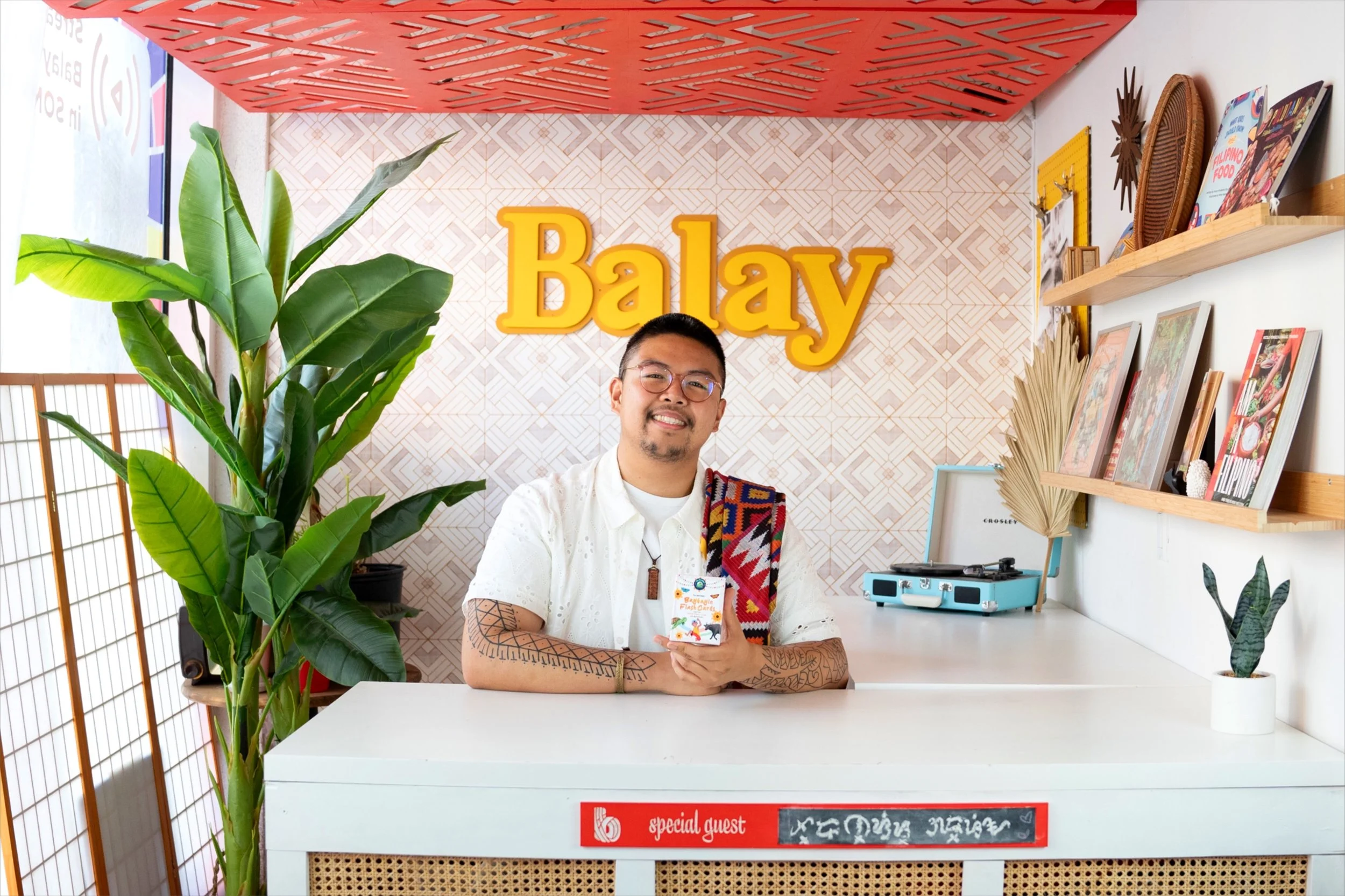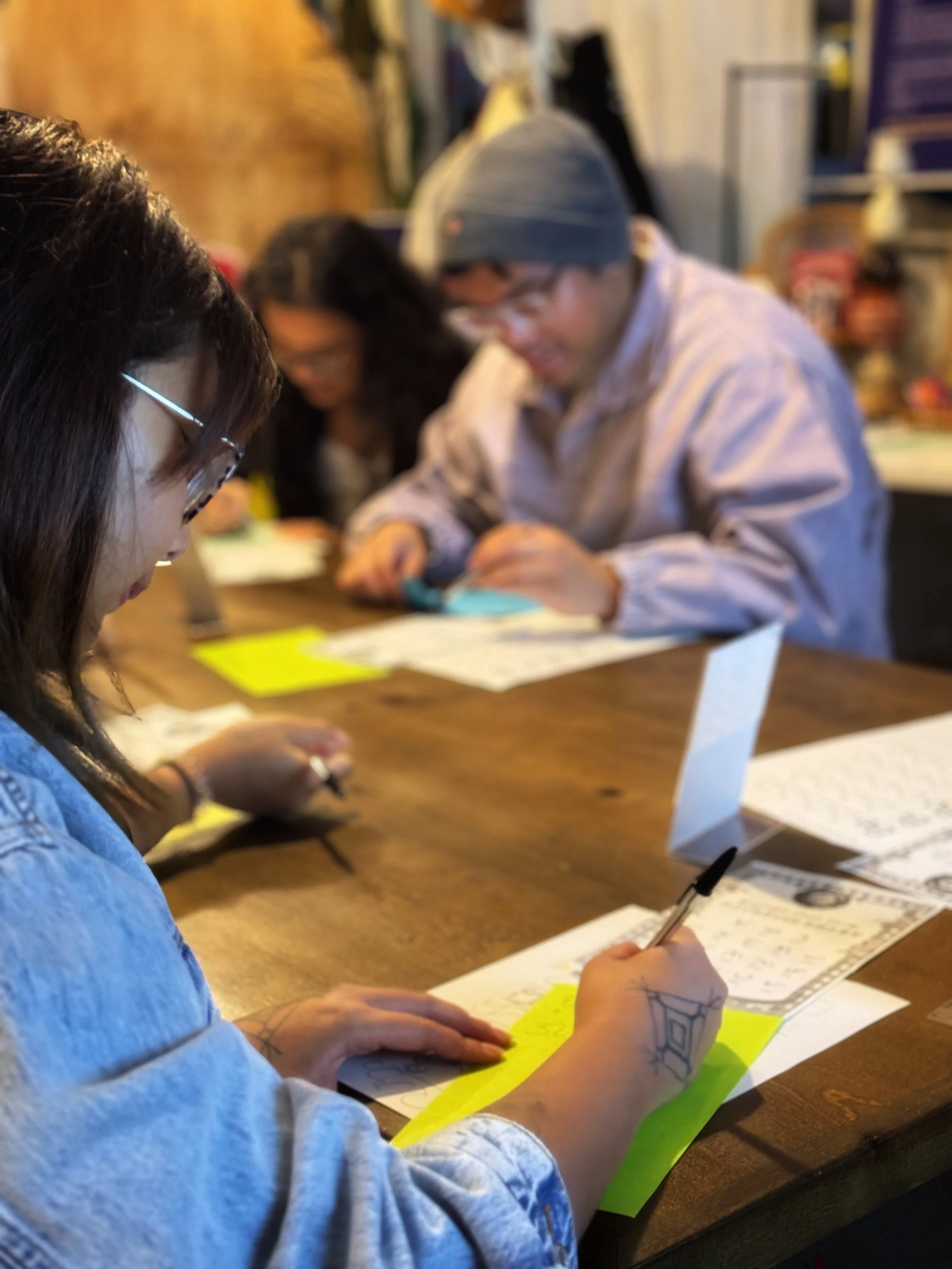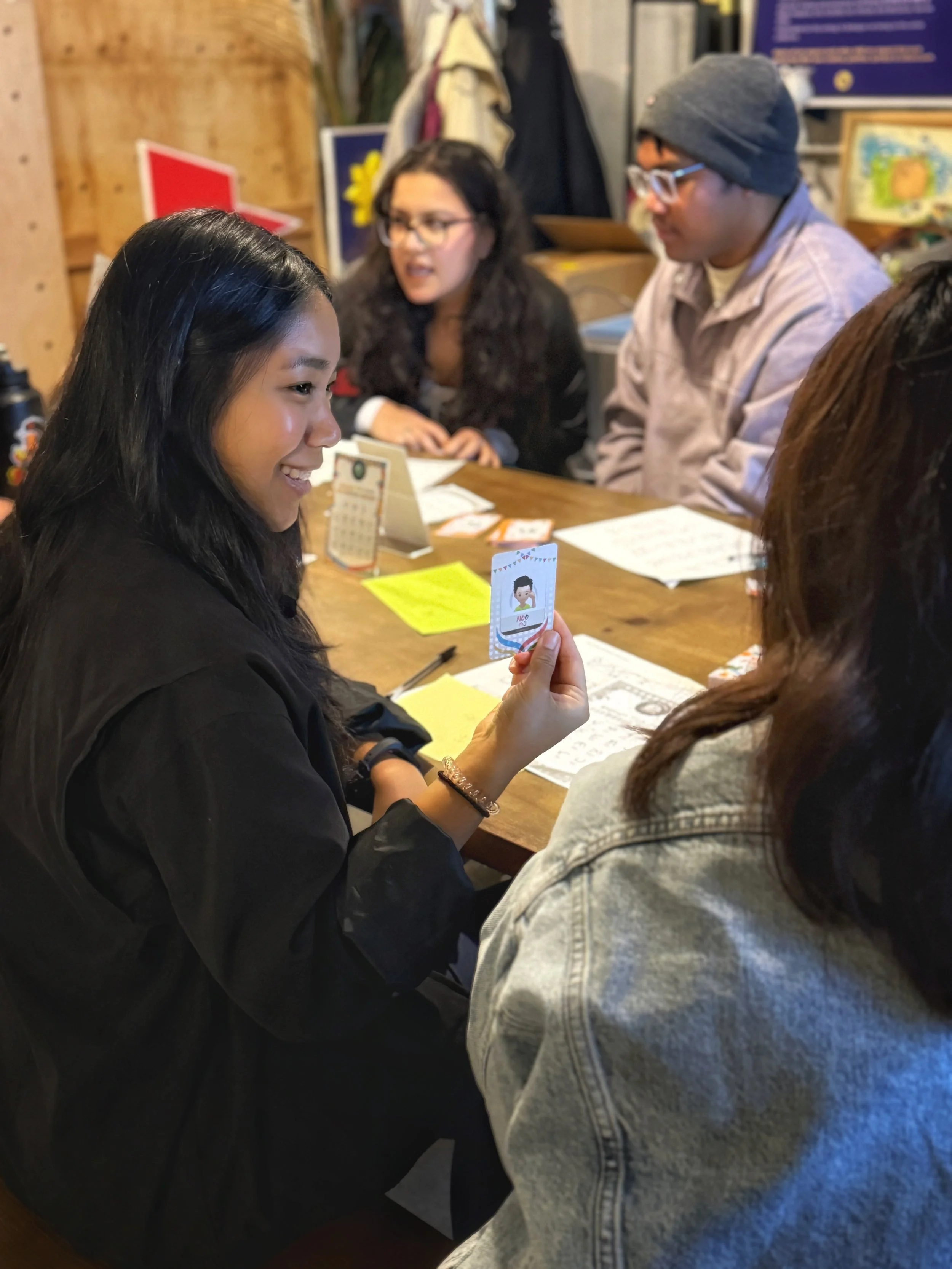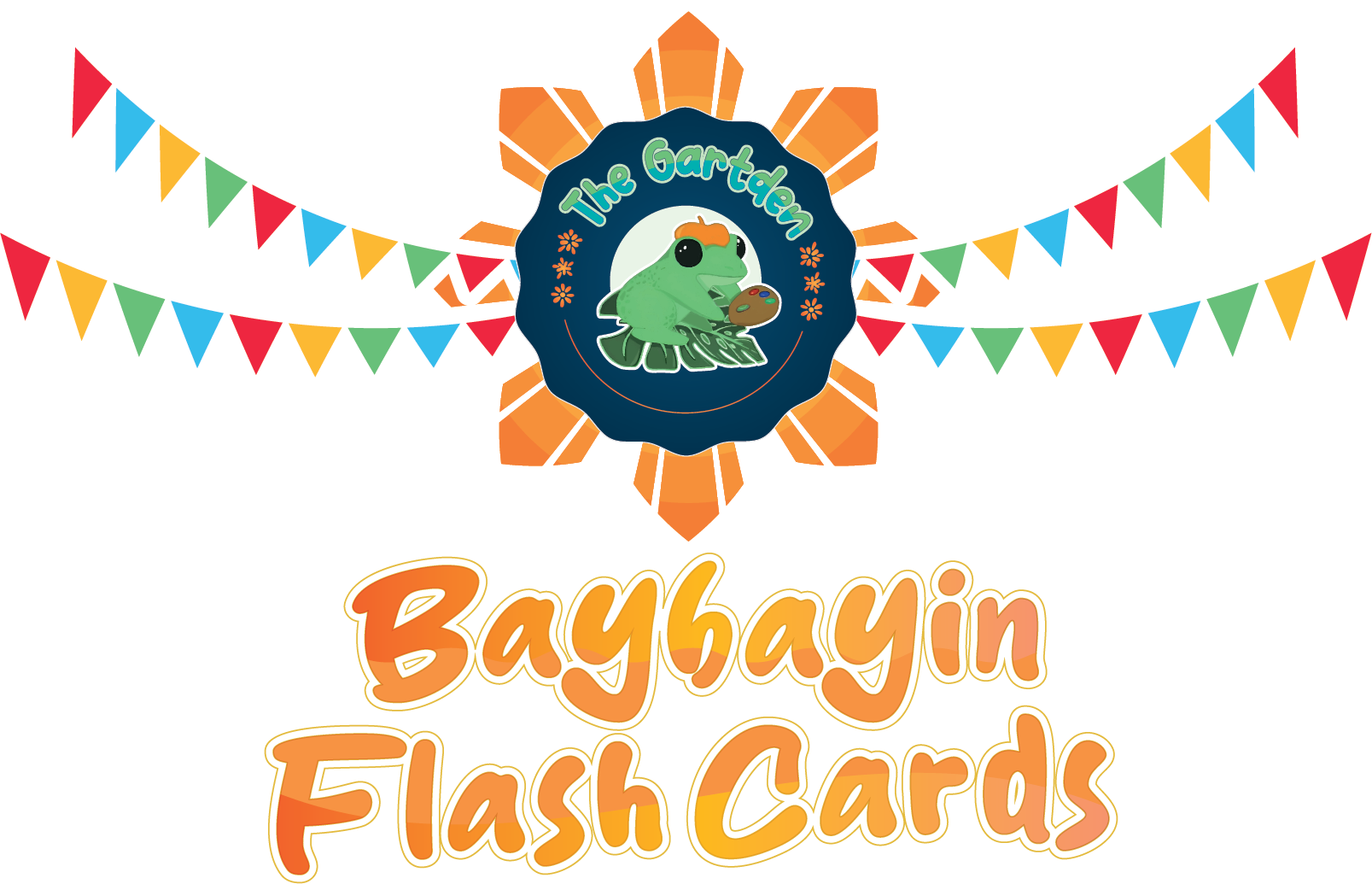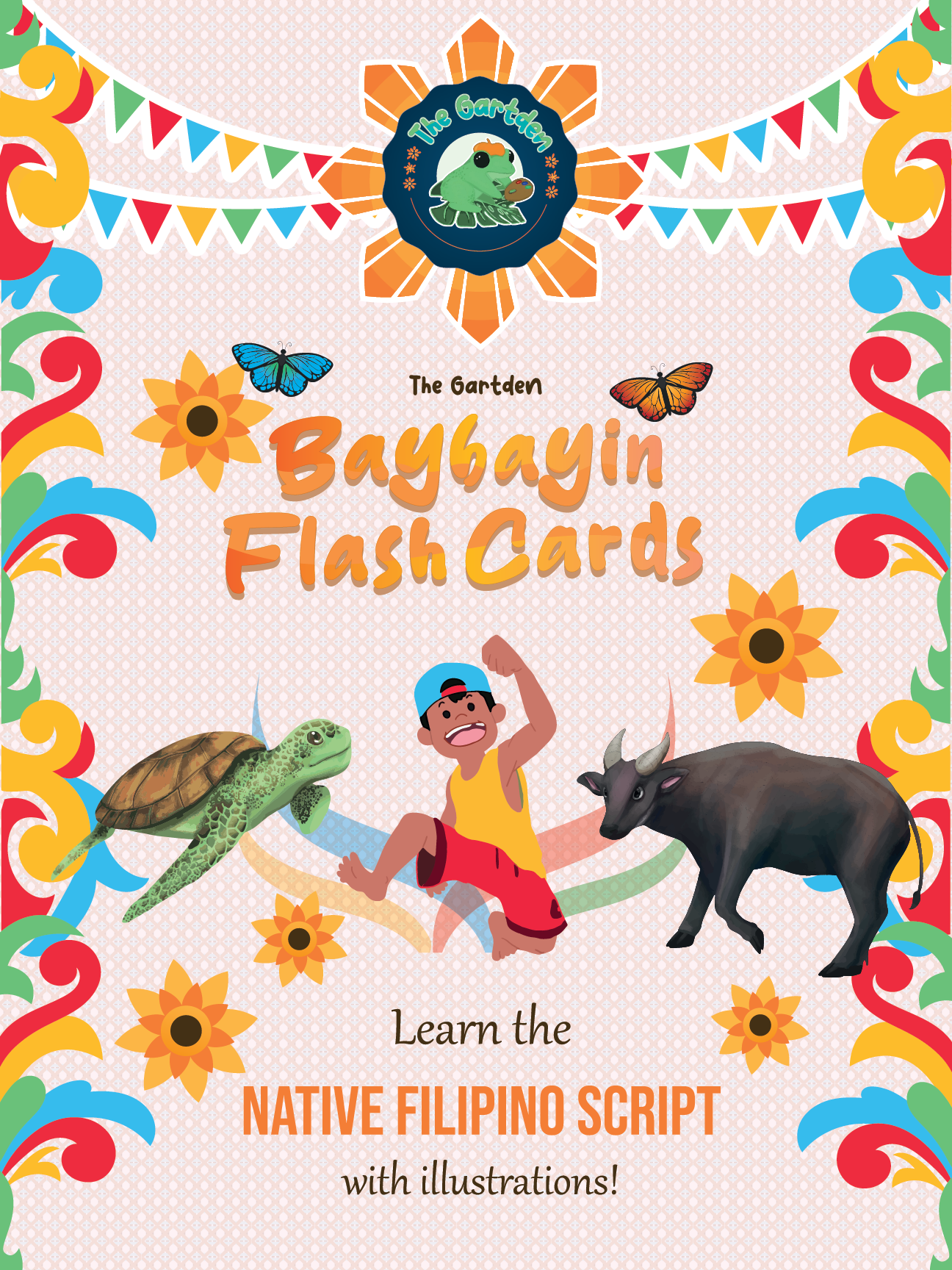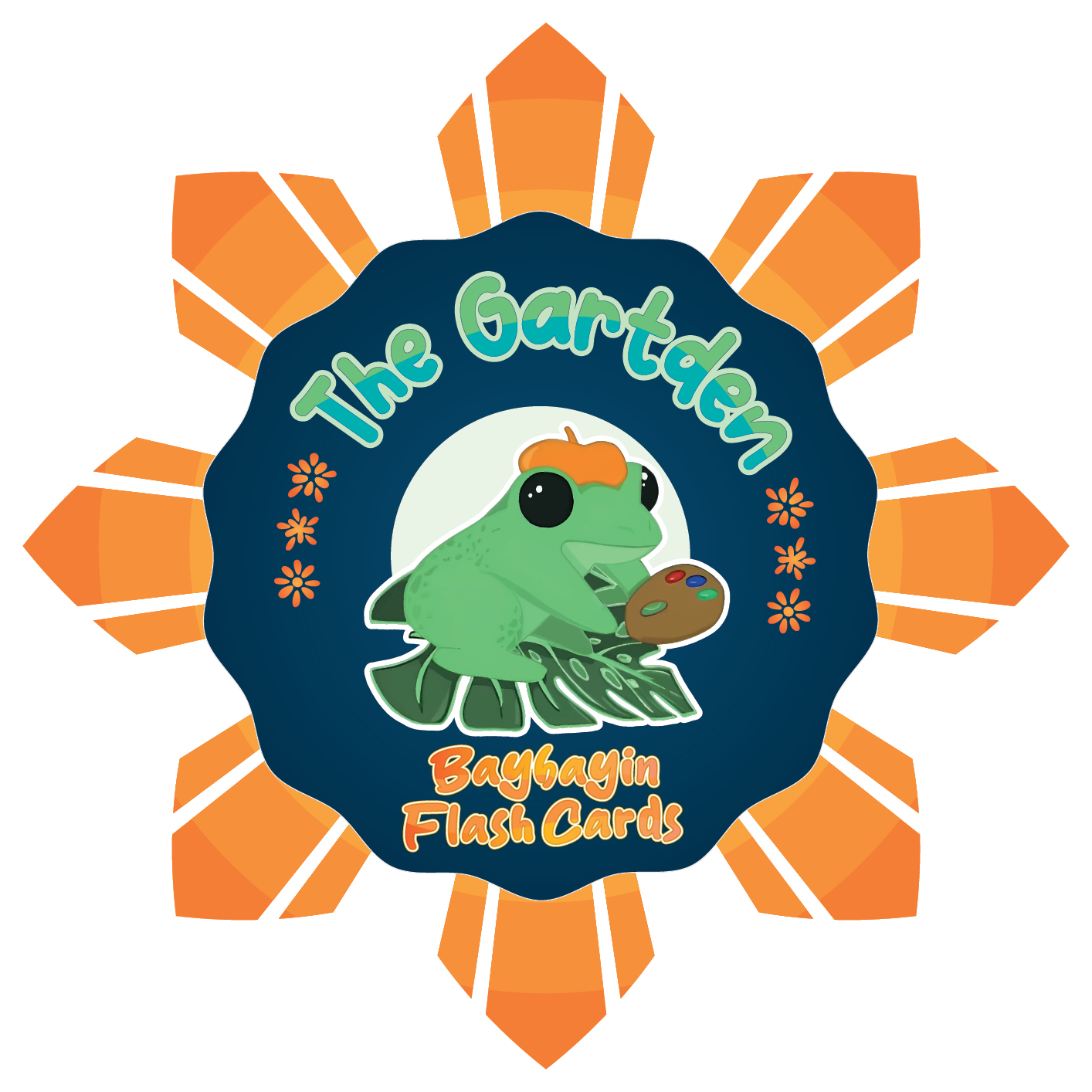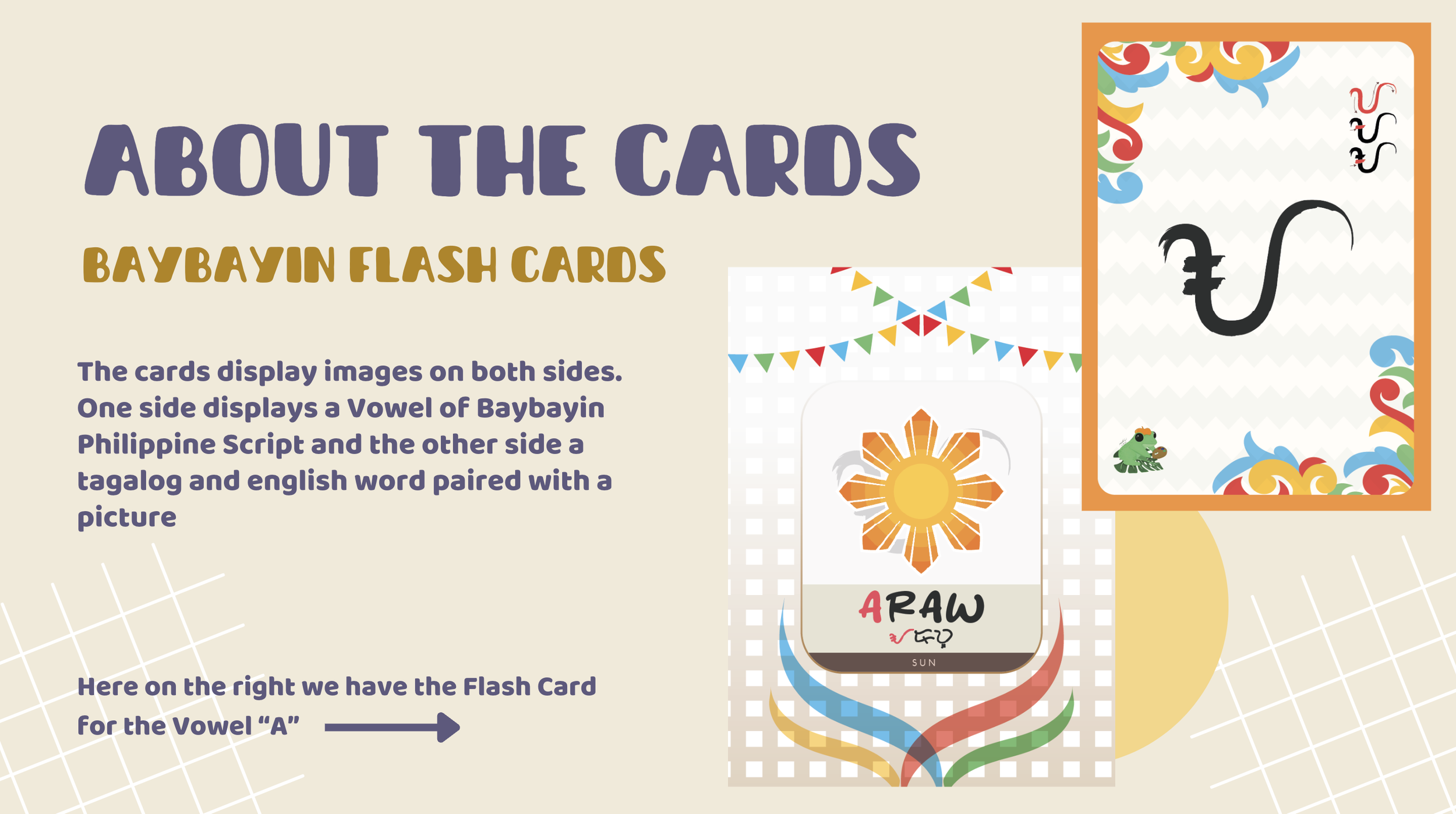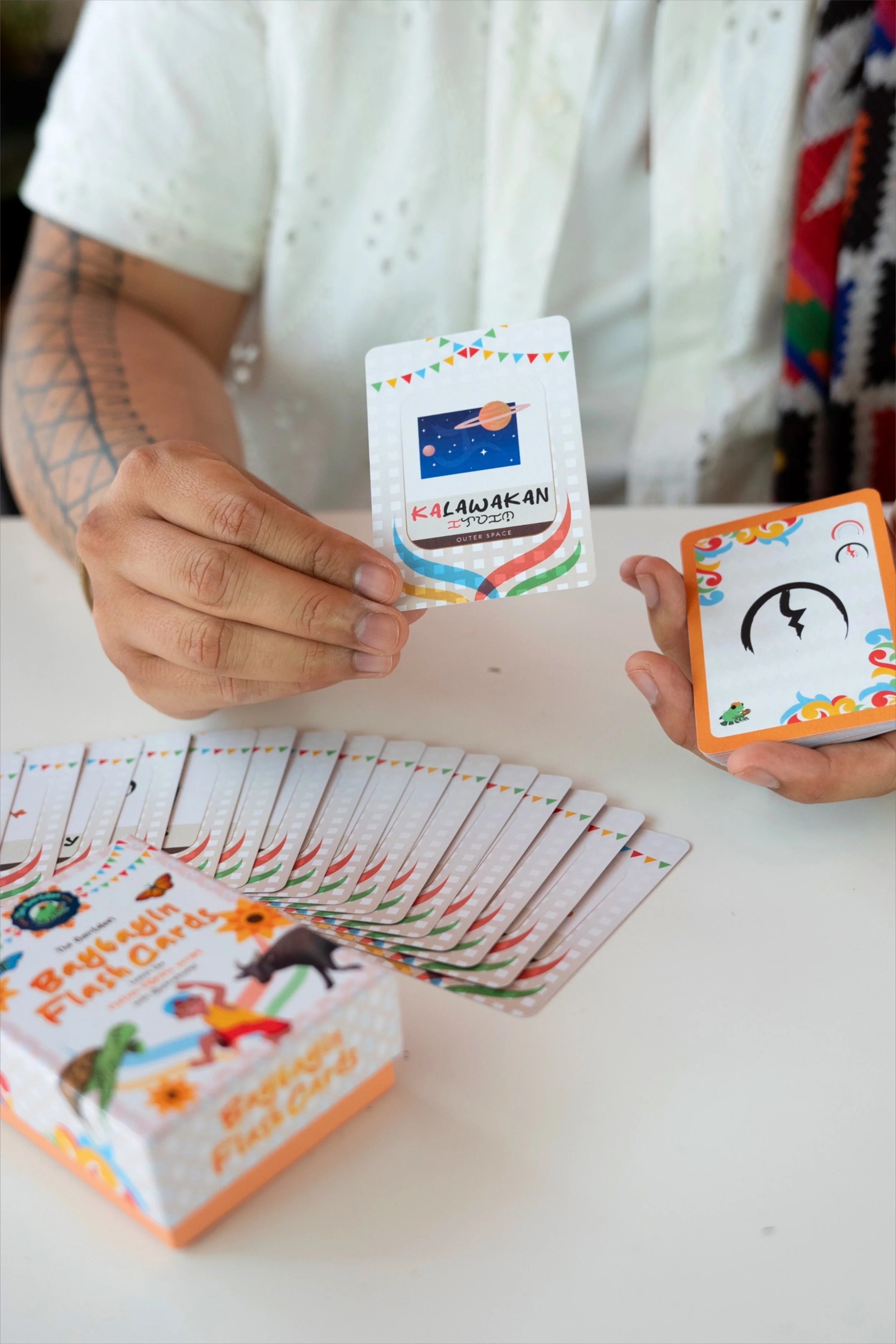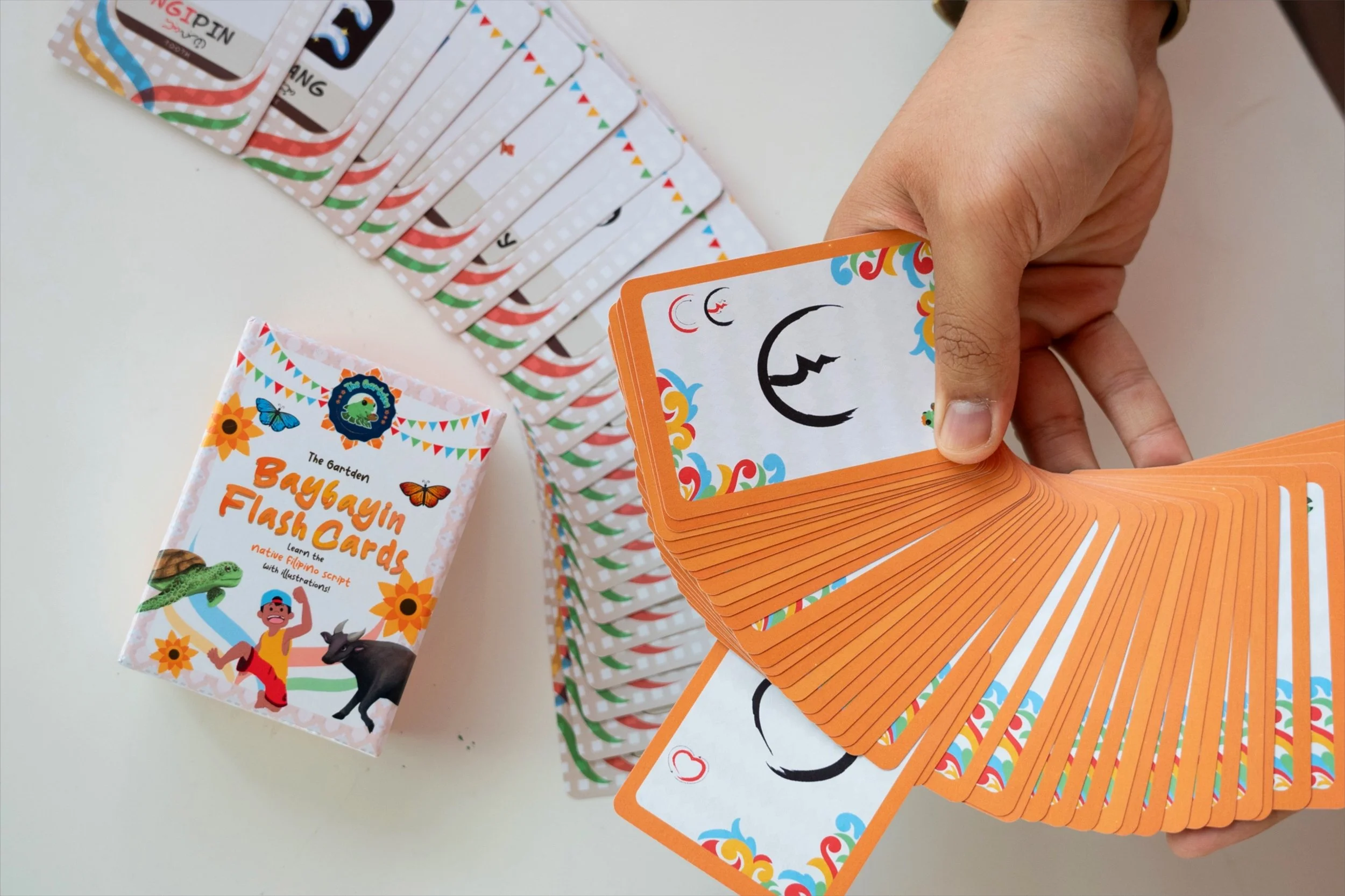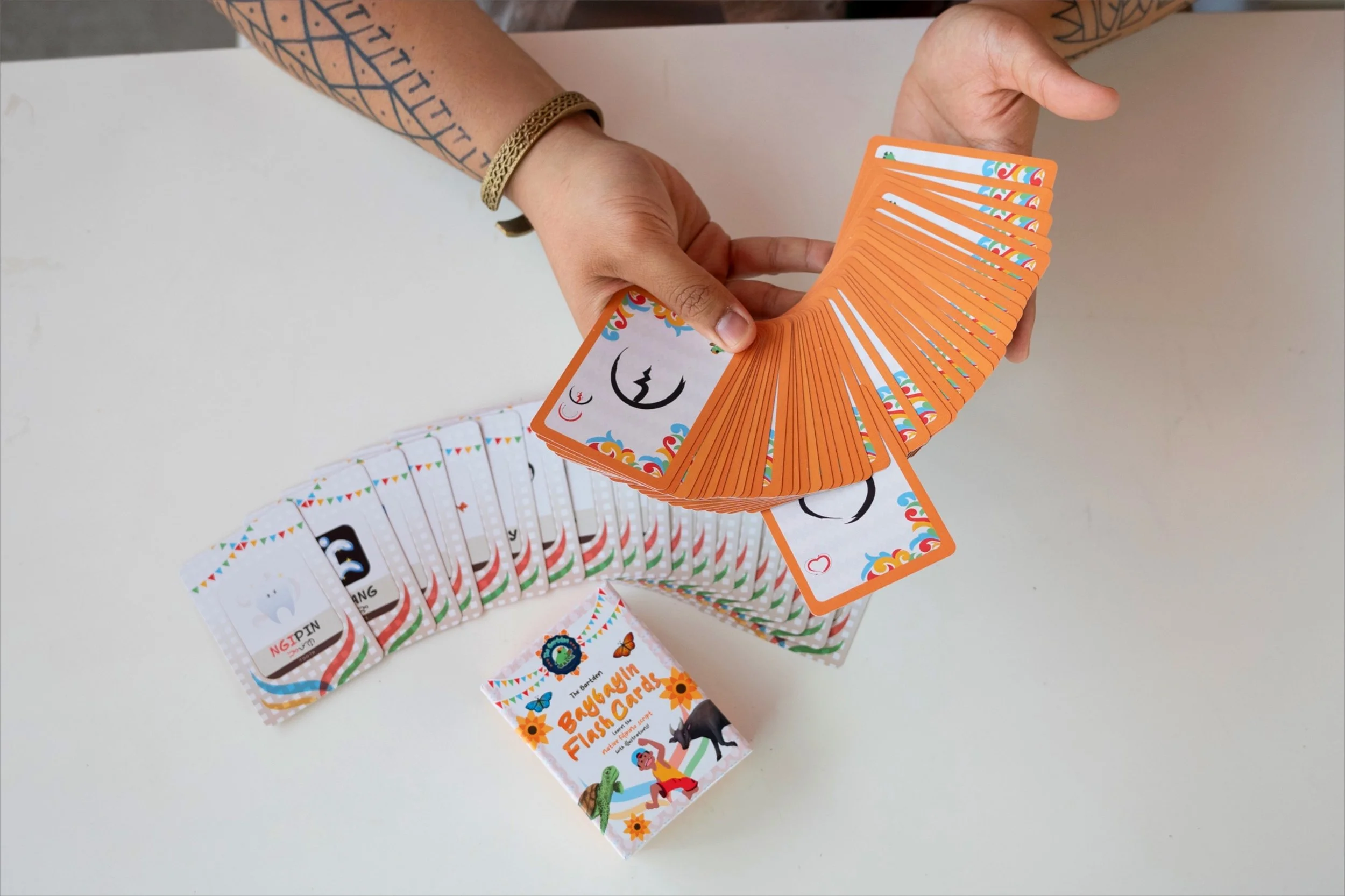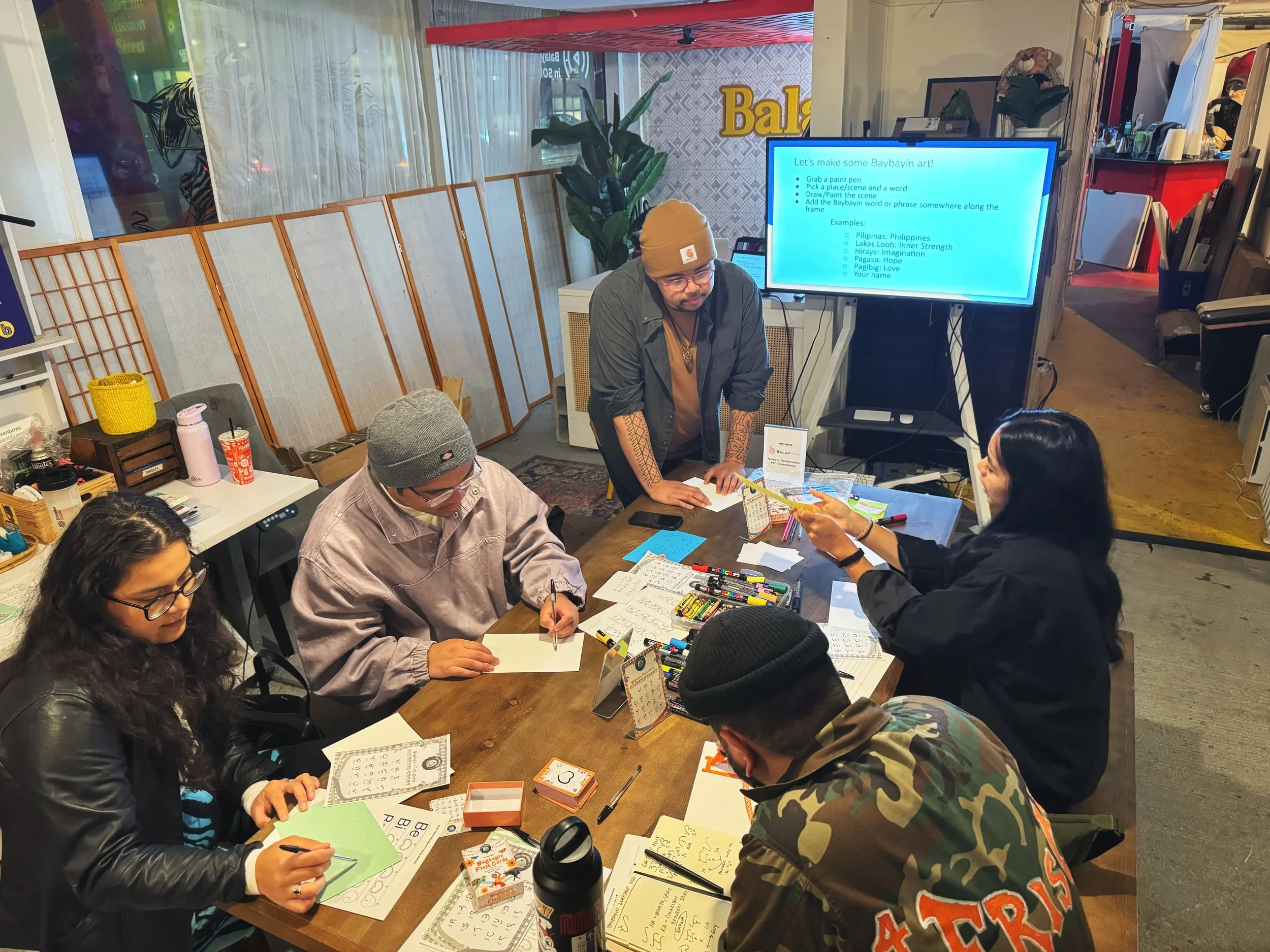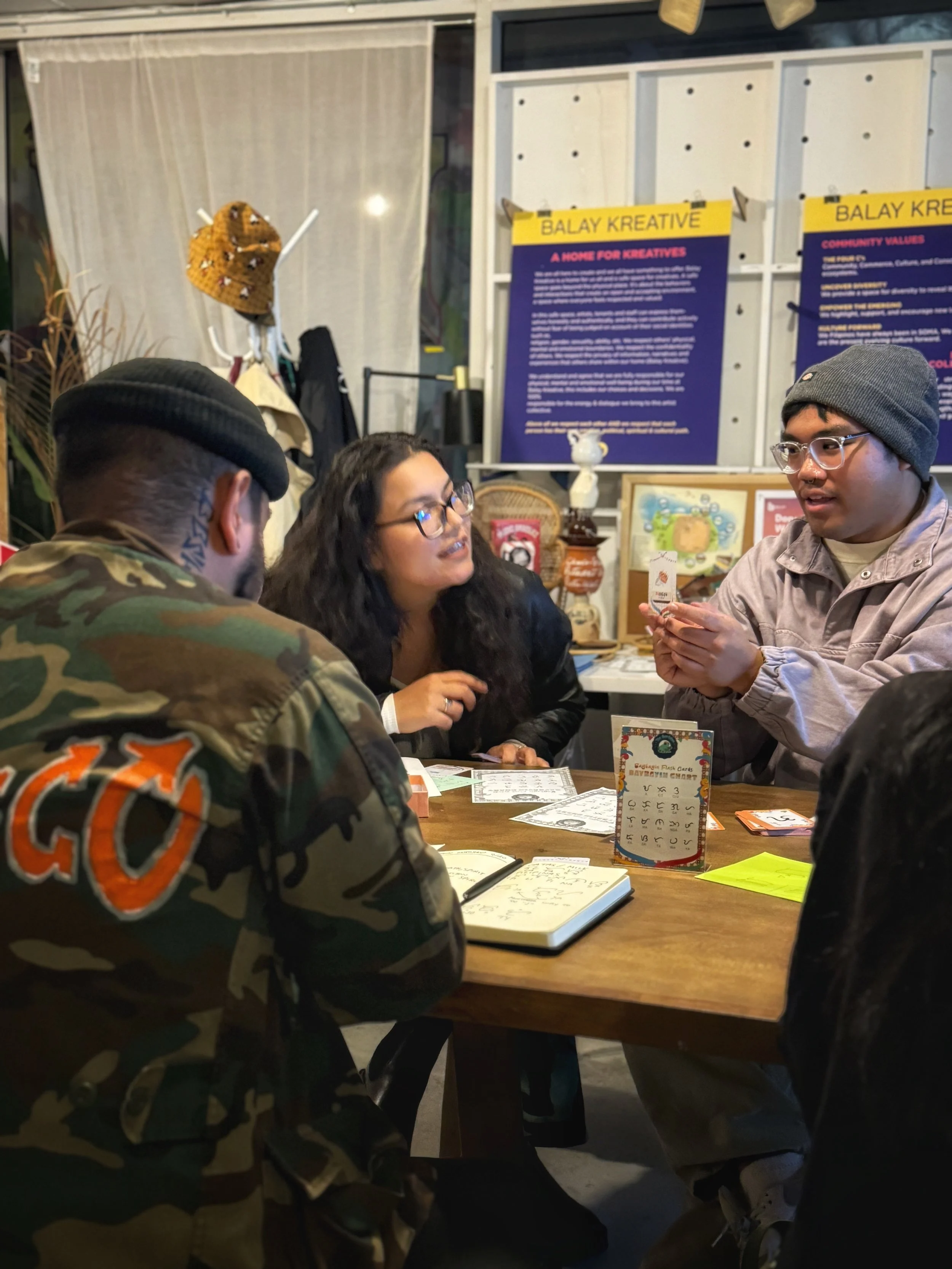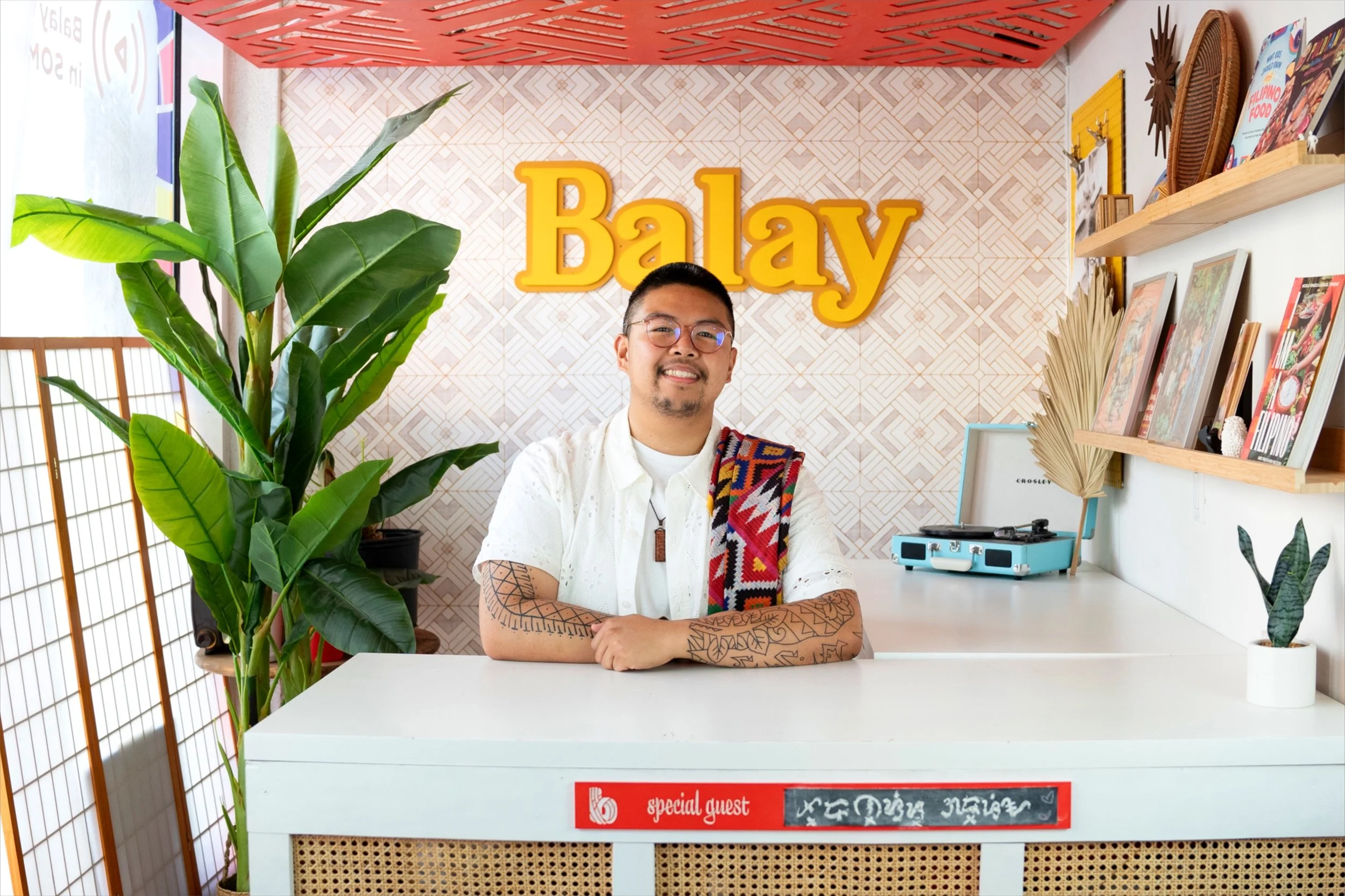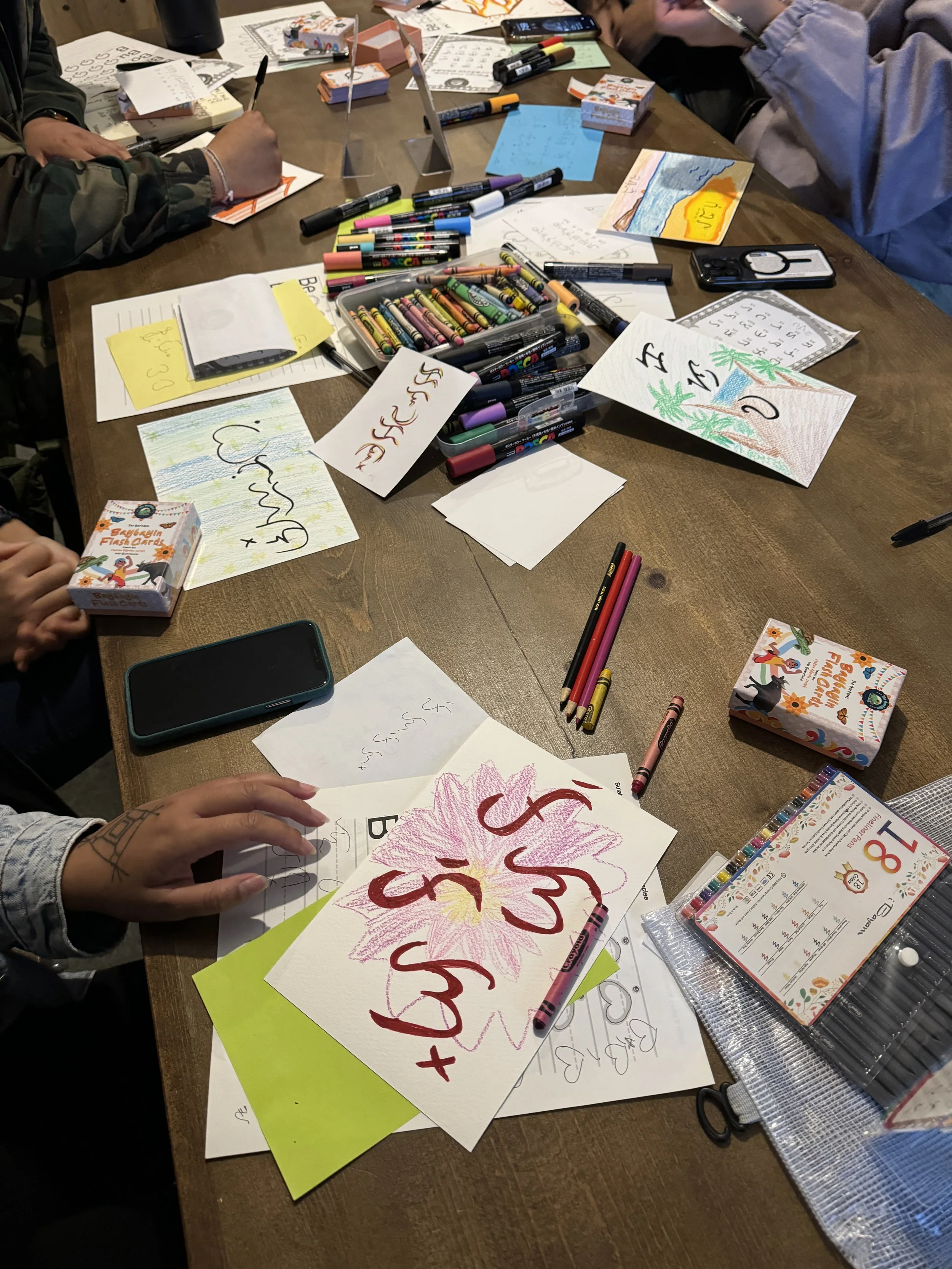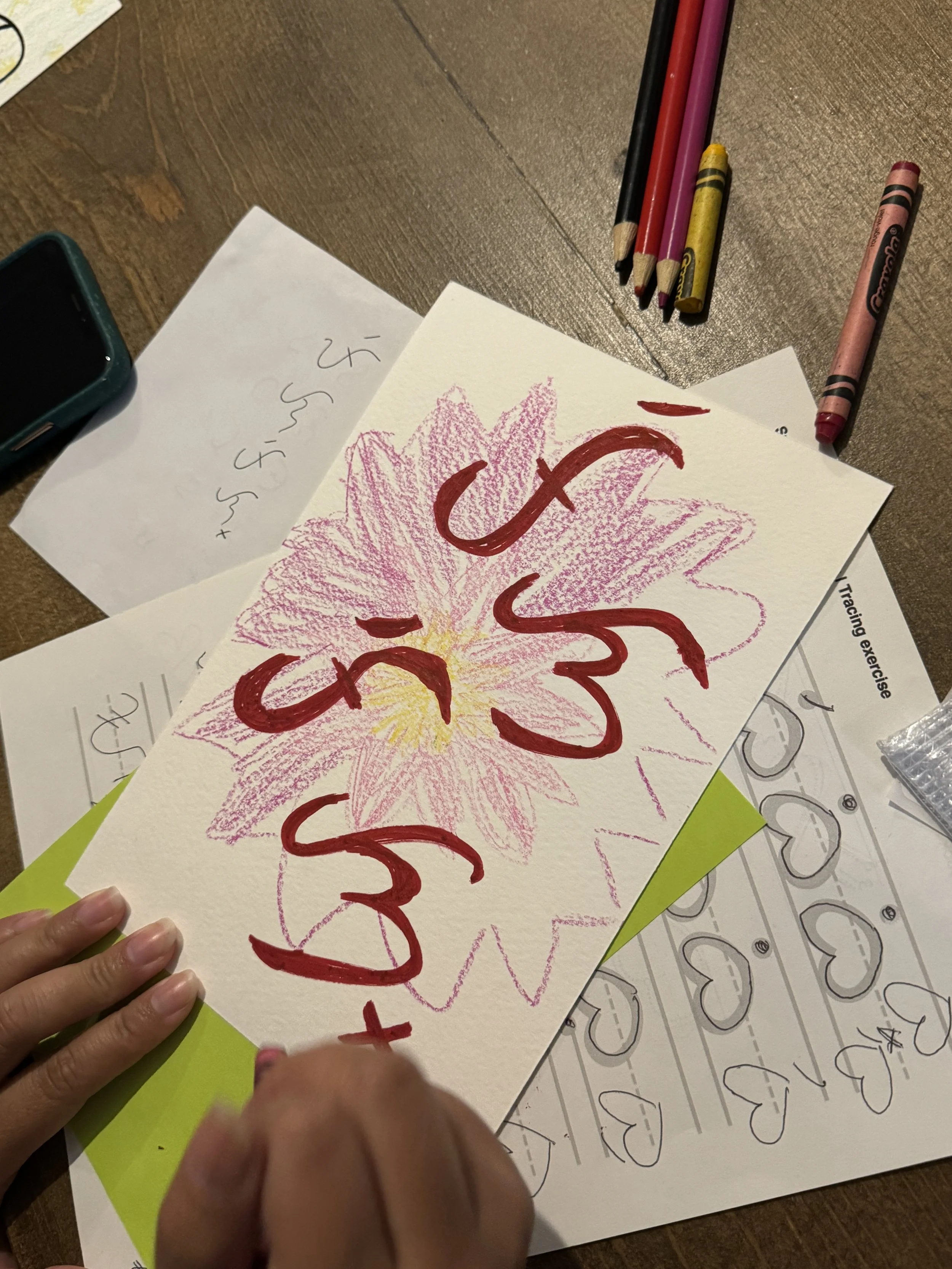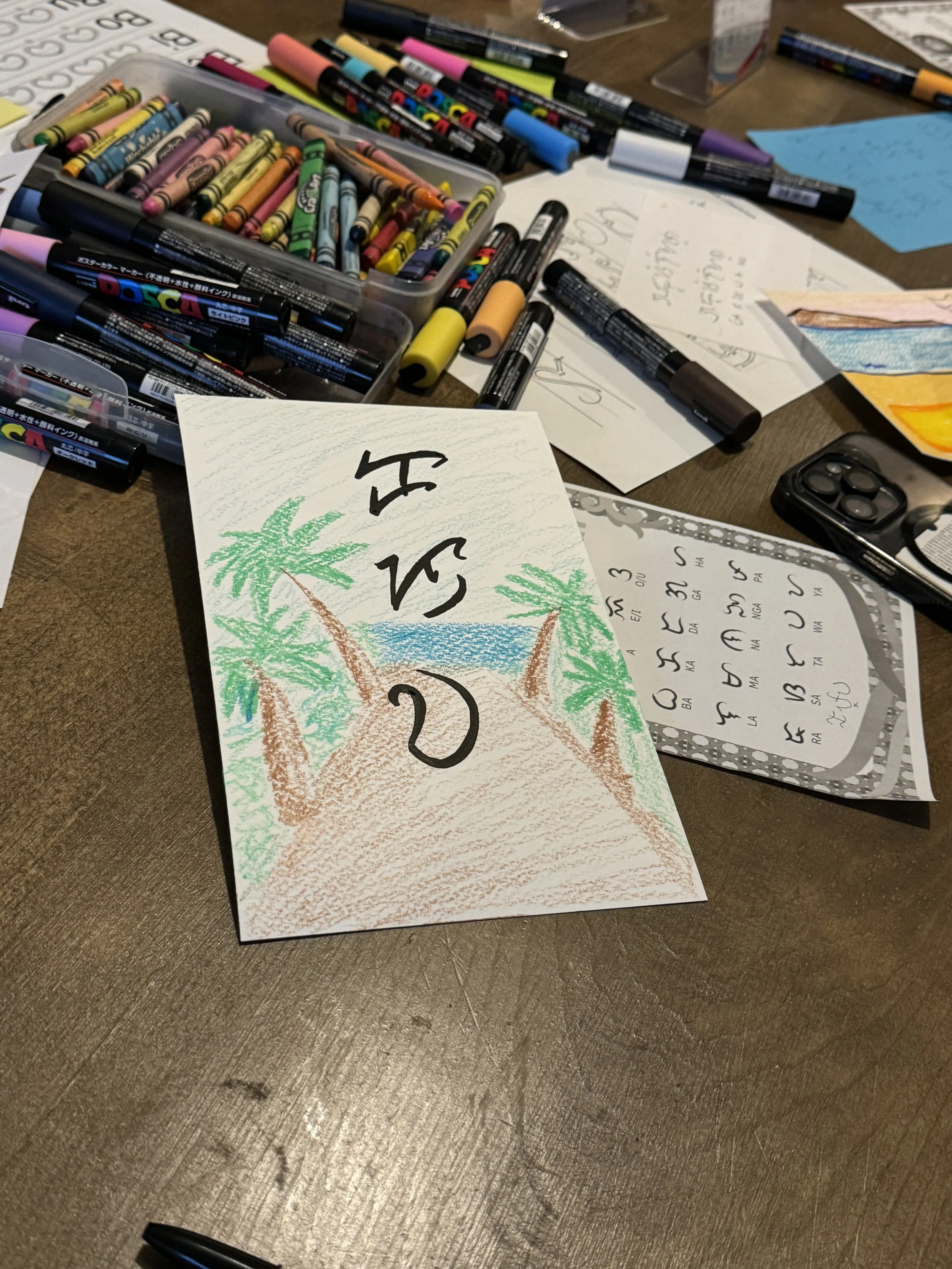Francis Garcia: Bridging Accessibility, Art, + Education w/ Baybayin Flashcards
By Jaeya Bayani
Francis Garcia was born and raised in the Bay Area. In 2018, he graduated with a Bachelor’s in Cinema at SF State. He has always been passionate for the many forms of visual arts. He’s a Baybayin artist and an avid practitioner of Filipino Martial Arts. As a Filipino American Artist in the Bay Area, his goal is to help educate and bring awareness to the numerous cultural practices of the Philippines through his art and media.
Francis Garcia, photo courtesy of @alyssamcorpuz
“Baybayin Flashcards are a physical medium that creates an educational tool from years of history, through visual artistry and combining the pre-colonial writing systems that we don’t use on a day-to-day basis.”
Please introduce yourself, your craft, and the project you are working on.
My name is Francis Garcia. I'm the founder of Baybayin Flashcards, which we produce through our business, The Gartden. We host both educational + art workshops, making [Baybayin] beginner-friendly + accessible to all ages.
How were you drawn to pursuing your craft as a Baybayin artist?
It stems from my experience with Filipino martial arts. In Filipino martial arts, you often see Baybayin used, whether it's the style of the logo or the advertisement. I was like, “what is that?” It wasn’t until I was training with Legacy Philippine Martial Arts in Daly City two years back, [that I found] resources to learn. It answered the question of these symbols that I was looking at all those years, and that part of the history that I didn't have the lock to. [After] opening that up, I [became] obsessed with learning and I never stopped.
Can you share how Baybayin Flash Cards blends education, accessibility, visual artistry, and pre-colonial writing systems, and what role you envision it playing in our cultural community?
Baybayin Flashcards are a physical medium that creates an educational tool from years of history, through visual artistry and combining the pre-colonial writing systems that we don't use on a day-to-day basis.
I hope to revitalize Baybayin by making it friendly for all ages and in a physical medium that is flashcards; as well as bring this indigenous practice into our ethnic studies, communities, and everyday life for Filipinos here in America and back home. I also hope to provide workshops, education, bring awareness to this part of our history, and promote cultural wealth.
Photos courtesy of @alyssamcorpuz
Can you talk about the values and/or or principles you build your work upon?
The values and principles that I built the project on is being proud of our identity, and connecting with and revitalizing this part of our culture that was lost. A pre-colonial indigenous practice like Baybayin is [what] we can use to connect with our ancestors. It is our history and [we can practice Baybayin to] better ourselves, our identity, and our community.
“I see Baybayin helping other communities in the SOMA and Bay Area. Hopefully, we can move it to other parts of the U.S. or internationally.”
what was the specific intention behind choosing flashcards as your medium for wanting to educate folks on Baybayin?
The reason why I chose the medium of flashcards starts two years back, when I was learning Baybayin. Even before then, there were not many resources out there. When I did find resources, it was from Jeff Quintano and Kristian Kabuay, who have had books, workbooks, and research based on Baybayin.
It wasn’t until then that I started learning about [Baybayin], and it wasn’t so easy. I wish I had something like Baybayin Flashcards to help me learn [to be more] fluent in writing and reading Baybayin.
Photos courtesy of @alyssamcorpuz
Have you experienced support and/or mentorship from folks like Jeff Quintano and Kristian Kabuay during the process of creating and promoting the Baybayin flashcards? If so, how impactful has that been for you to have that type of guidance?
Kristian Kabuay, a mentor of mine, has supported my Baybayin Flashcards. He’s a very good resource because he’s been doing it for years, and has all the research and help revitalizing this aspect of our culture. Jeff Quintano [has also been] a big help, and I find him [to be] another mentor [who] helps me be the best educator that I can.
Photos courtesy of Francis Garcia
What are arts and culture initiatives centered around Baybayin training education that you would like to SEE take up more space in the SOMA, and beyond?
Whether it's through the flashcards or workshops that I do, I see Baybayin helping other communities in the SOMA and Bay Area. Hopefully, we can move it to other parts of the U.S. or internationally. It starts with educating youth and folks of all ages. A good way of bringing awareness to this part of our culture and history are the workshops that we host, workshops others host, putting it into ethnic studies, or bringing flashcards to our larger community.
“Balay Kreative has been an excellent resource. They provide a safe space [and] an excellent community [where] I’m able to bounce back between the inspiration of other artists. ”
Photo courtesy of @alyssamcorpuz
Up until this point, what has been the most meaningful experience at Balay Kreative? How has Balay Kreative helped you manifest your vision and intention for your project?
Balay Kreative has been an excellent resource. They provide a safe space [and] an excellent community [where] I'm able to bounce back between the inspiration of other artists. They have so much to offer, [in terms of] experience with a wide variety of different art forms and backgrounds. [I’ve been] able to be exposed to kapwa or the community, and make connections with everyone. I think that's the biggest takeaway with Balay Kreative.
Photos courtesy of Francis Garcia
Why is it important for the next generation to advocate for the continued integration of our history and elders’ legacy through arts, culture, and ethnic studies into our local community?
It’s important to bring this into the community and ethnic studies because there's a huge percent of Filipinos and non-Filipinos who don't know about the existence of Baybayin. It’s important to bring it into education and make it accessible for folks. If we don't, it can die, and that's not [what] we want. We want to give back.
Andrea + Francis, Photo courtesy of Alyssa Corpuz
Please share any upcoming announcements, updates, or shameless plugs that you have!
Thank you for having an interest in Baybayin and my artistry. Please go see us at Undiscovered SF, October 19th! We'll be at the Cast Studio and we'll be hosting free workshops all day, from 12 pm / noon to 4 pm. Come learn Baybayin, read, write, see the exhibit, and we’ll play with some flashcards. See you there!

